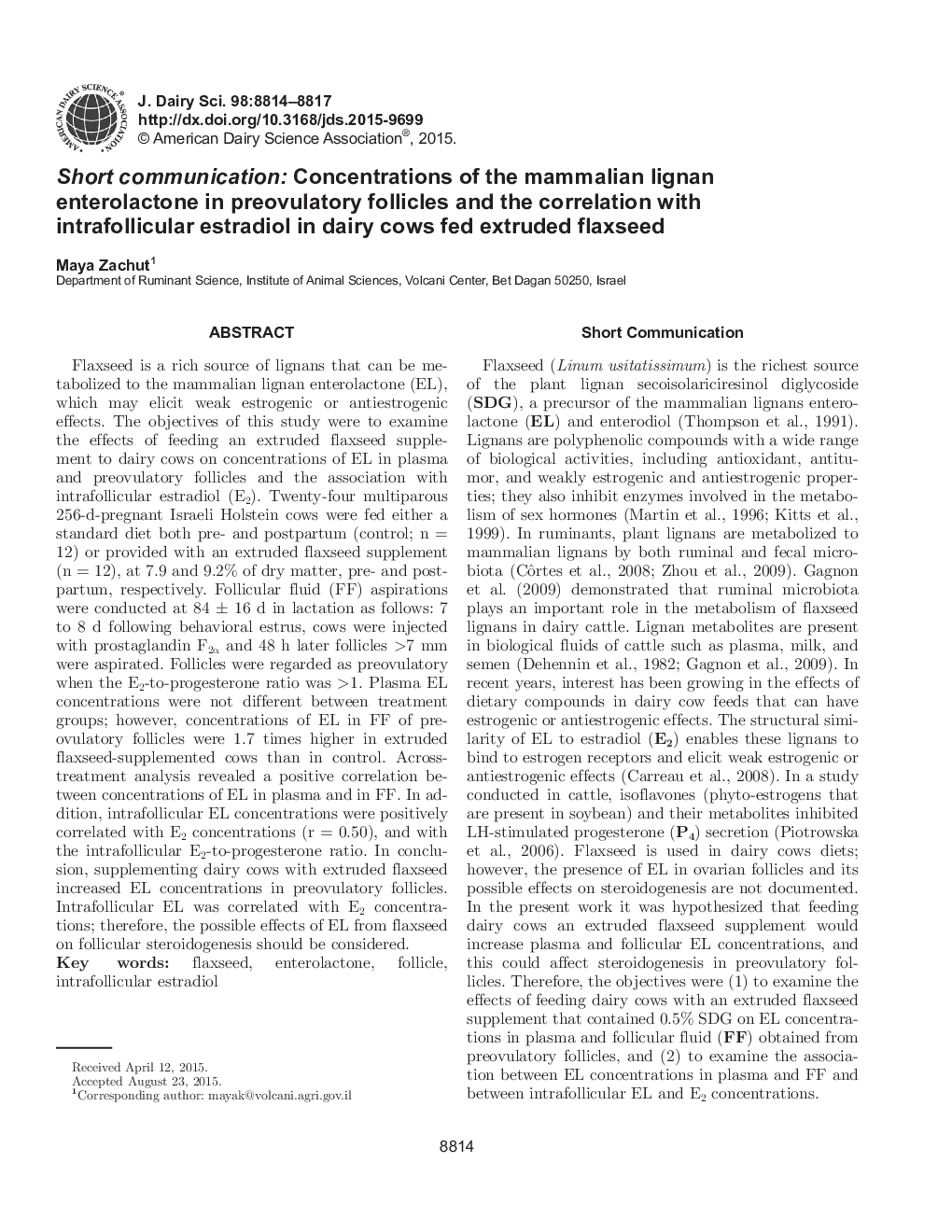| Article ID | Journal | Published Year | Pages | File Type |
|---|---|---|---|---|
| 10973417 | Journal of Dairy Science | 2015 | 4 Pages |
Abstract
Flaxseed is a rich source of lignans that can be metabolized to the mammalian lignan enterolactone (EL), which may elicit weak estrogenic or antiestrogenic effects. The objectives of this study were to examine the effects of feeding an extruded flaxseed supplement to dairy cows on concentrations of EL in plasma and preovulatory follicles and the association with intrafollicular estradiol (E2). Twenty-four multiparous 256-d-pregnant Israeli Holstein cows were fed either a standard diet both pre- and postpartum (control; n = 12) or provided with an extruded flaxseed supplement (n = 12), at 7.9 and 9.2% of dry matter, pre- and postpartum, respectively. Follicular fluid (FF) aspirations were conducted at 84 ± 16 d in lactation as follows: 7 to 8 d following behavioral estrus, cows were injected with prostaglandin F2α and 48 h later follicles >7 mm were aspirated. Follicles were regarded as preovulatory when the E2-to-progesterone ratio was >1. Plasma EL concentrations were not different between treatment groups; however, concentrations of EL in FF of preovulatory follicles were 1.7 times higher in extruded flaxseed-supplemented cows than in control. Across-treatment analysis revealed a positive correlation between concentrations of EL in plasma and in FF. In addition, intrafollicular EL concentrations were positively correlated with E2 concentrations (r = 0.50), and with the intrafollicular E2-to-progesterone ratio. In conclusion, supplementing dairy cows with extruded flaxseed increased EL concentrations in preovulatory follicles. Intrafollicular EL was correlated with E2 concentrations; therefore, the possible effects of EL from flaxseed on follicular steroidogenesis should be considered.
Keywords
Related Topics
Life Sciences
Agricultural and Biological Sciences
Animal Science and Zoology
Authors
Maya Zachut,
